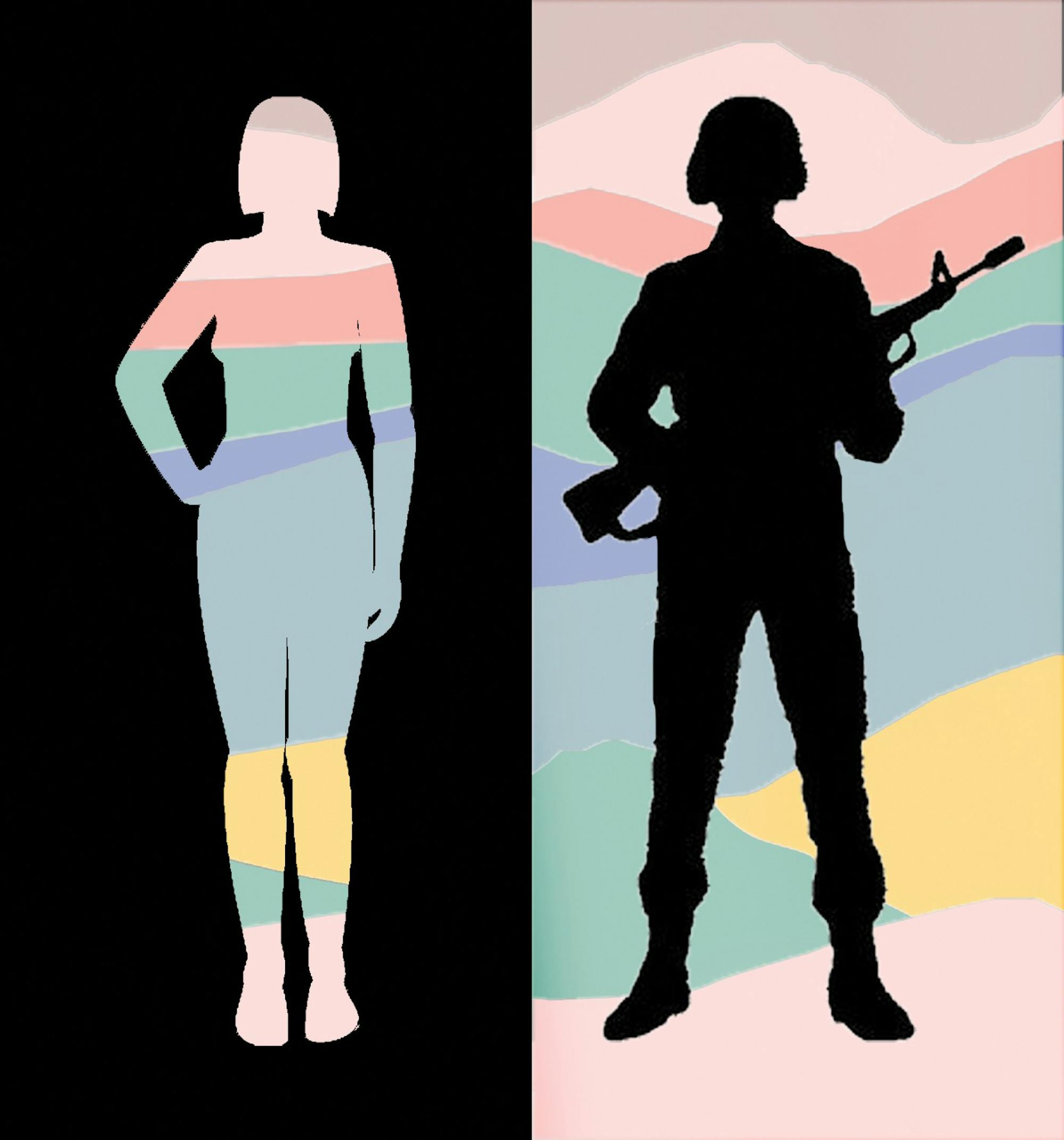“I started out with the premise that history is nothing but a series of narratives created by individuals who are fallible, biased and, quite frankly, have bad memories. And there is so much that falls in the gaps, and there is so much that has just been silenced,” said author Maaza Mengiste of the project that led to her most recent novel, “The Shadow King.”
Mengiste, born in Addis Ababa, Ethiopia, is a Fulbright scholar and professor at Queen’s College of the City University of New York. She is a recipient of a National Endowment for the Arts fellowship and has also authored a previous novel, “Beneath the Lion’s Gaze,” one of the Guardian’s 10 best contemporary African books.
Mengiste was one of the featured authors of the Cleopatra Mathis Poetry and Prose Series, sponsored by the English and creative writing department. As part of this program, Mengiste read excerpts from her novel and participated in a Q&A session in Sanborn Library last week.
Mengiste’s newest novel, “The Shadow King,” was published in September and centers on the Italo-Ethiopian War, which she characterized as the first conflict of World War II.
Mengiste described just how pervasive this narrative of the Italo-Ethiopian War and the Ethiopian victory is within cultural remembrance and identity, but also how much this focus on the resulting victory relegates the preceding five years of fighting the war to the margins of our memories:
“There is no Ethiopian that doesn’t know this story,” Mengiste said at the reading. “It is mythic, it is legend, it is so deeply rooted in what Ethiopian identity is … But I became interested in this idea of what happened in between. We have lived so much in myth; we have lost sight of what the truth was of that moment.”
Much of that forgotten narrative, according to Mengiste, has to do with women. Not only how they supported men, but how they carryied rifles, were bombed and fought in the war like any other soldiers.
Taking place 40 years after the war, Mengiste’s novel reveals the ways in which the war is both very present in the collective conscience but also misremembered. But the remnants of this war extend beyond only memories. While conducting research for “The Shadow King,” Mengiste said she held a reading of her other novel, “Beneath the Lion’s Gaze,” at a small bookshop in Southern Italy. An emotional inquiry from a man in the audience, reckoning with his own father’s involvement in the Italo-Ethiopian conflict, resulted in his gifting copies of his father’s letter, photographs and other documents from that period to Mengiste. Mengiste described how she came to search for more photographs like these in Italian flea markets, something that helped lead her to writing “The Shadow King.”
This process of collecting photographs and stories is still ongoing, Mengiste emphasized. She is currently in the midst of creating an internet archive of the photographs, a project entitled Project 35-41, recalling the years of the conflict: 1935 to 1941.
As she delved deeper into research, Mengiste recalled being overwhelmed by this history and its complexity.
“I was overwhelmed with the history and the research; I was so caught up in the fact that so much was not known, and I kept discovering more. I initially lost track of my characters because I wanted to tell it all.”
Mengiste’s exploration extended beyond only Ethiopian accounts of the war. One of her central characters in “The Shadow King” is Ettore, a Jewish-Italian photographer with the Italian army in Ethiopia.
“His character became a pivot for a lot of questions that I’ve asked for a long time about war, about art, about the intersections between photography and conflict … I became very interested in this idea of what happens to the women who are in front of that camera and what happens to the men behind it, because they are rearranging and reshaping their own sense of manhood and what masculinity means.”
Taliq Tillman ’22 said he attended the reading because he is interested in decolonial work and is currently working on a paper for his film class which examines the idea of constructed narratives, specifically within the context of modern cinema as inherently white.
“It is the same concepts [Mengiste] is talking about, understanding that this [cinematic history] was a construction, not just a neutral history, so that then I can bring in more inclusive voices and voices of color,” Tillman said.
While conducting research for this book, in Trieste, Italy, Mengiste visited what had been a concentration camp, accompanied by English and creative writing professor Alexander Chee, who was her colleague at the time. Mengiste described her very emotional but profound reaction to this place.
“Stepping into that camp, I couldn’t help thinking of the camps that are created in this country right now … I realized that it really is all connected, we are all threads bound to everything that happens to everyone,” Mengiste said.
Chee, who taught with Mengiste at the NYU Writing program in Florence from 2016-2018 and introduced her at the reading, described his admiration for Mengiste as a writer and teacher.
“She had researched so intensely, finding these old photographs of Ethiopian women and soldiers in Italian flea markets. It struck me as an incredible story to tell, and I wanted my students to hear that from her,” Chee said.


